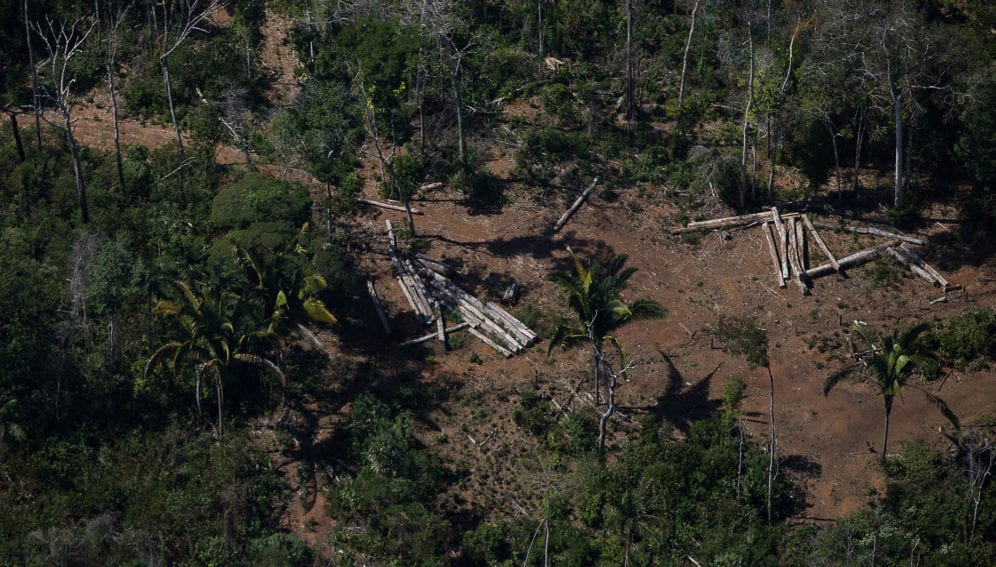23/02/21
Pandemic covers up setbacks in Brazilian environmental laws

By: Meghie Rodrigues
Send to a friend
The details you provide on this page will not be used to send unsolicited email, and will not be sold to a 3rd party. See privacy policy.
Environmental progress in Brazil looks set to be one of the casualties of COVID-19, with harmful changes to the law being pushed through while attention is diverted by the global pandemic, a study warns.
Since January 2019, the Brazilian government approved 57 pieces of legislation that effectively weaken national environmental laws, the study published in Biological Conservation found.
Of these, almost half (27) occurred between March and September 2020, in the midst of the pandemic, with the highest number (16) registered in September.
“I imagined that [environmental deregulation] would be concentrated in some areas, such as less control of deforestation, but the data shows another scenario,”
Erika Berenguer, researcher, Universities of Oxford and Lancaster, UK
The study is based on data from the Official Gazette of the Union, which publishes all new decrees and changes to Brazilian legislation.
Researchers also analysed monthly deforestation rates provided by the National Institute for Space Research (INPE) of Brazil, and fines associated with illegal deforestation, issued by the Brazilian Institute of Environment and Renewable Natural Resources (IBAMA).
They found that, during the period studied, the issuing of environmental fines for illegal deforestation fell by 72 per cent despite an increase in deforestation rates.
According to INPE, deforestation in the Amazon was 9.5 per cent higher between August 2019 and July 2020 than between August 2018 and July 2019 – making it the highest level of annual deforestation since 2008.
Among the legislative setbacks, the study highlights the toxicological review of 47 pesticides, which in July 2020 were classified as less dangerous or left without a specific category.
Another piece of legislation cited, from June 2020, makes it no longer necessary to restore all permanent environmental conservation areas, even if they are illegally deforested.
In an interview with SciDev.Net, Brazilian biologist Erika Berenguer, co-author of the study and researcher at the universities of Oxford and Lancaster, in the United Kingdom, said that a weakening of environmental standards was expected.
In April 2020, environment minister Ricardo Salles said at a ministerial meeting that environmental laws had to be loosened as much as possible “while the media were only concerned about COVID19”.
Berenguer, however, is surprised by the sweeping way in which environmental deregulation has occurred. “I imagined that it would be concentrated in some areas, such as less control of deforestation, but the data shows another scenario,” she said.
Decisions range from decreasing the amount of biodiesel added to Brazilian diesel (from 12 to 10 per cent), to permitting mining in designated areas before final authorisation from the competent authorities. There were also frequent military appointments to environmental agencies.
“As a biologist I could not command a military battalion because I have no experience for that,” Berenguer added. “It makes no sense that military personnel without technical knowledge can head environmental agencies.”
Rubens Morato Leite, professor of environmental law at the Federal University of Santa Catarina, in southern Brazil, says the legal dismantling exposed by the study is unsurprising, given that the environment ministry is headed by a lawyer, Salles.
“As secretary of the environment in the state of Sao Paulo (2016-2017), Salles had already shown his profile as a manager,” said Morato Leite, who did not participate in the study.
Salles took office as environment minister in January 2019 in the administration of President Jair Bolsonaro. This was despite being convicted in December 2018 of administrative irregularity, for altering zoning maps in the management plans of a protected area around the Tiete River to benefit mining companies.
Despite the legal dismantling, however, pressure from civil society may have limited the damage, the study finds.
Researchers said there has been intense press coverage on environmental issues during the pandemic, while scientists have written a number of letters and conducted studies to highlight the issue. Some celebrities and Pope Francis have also drawn attention to the impact on the rights of indigenous people in Brazil.














